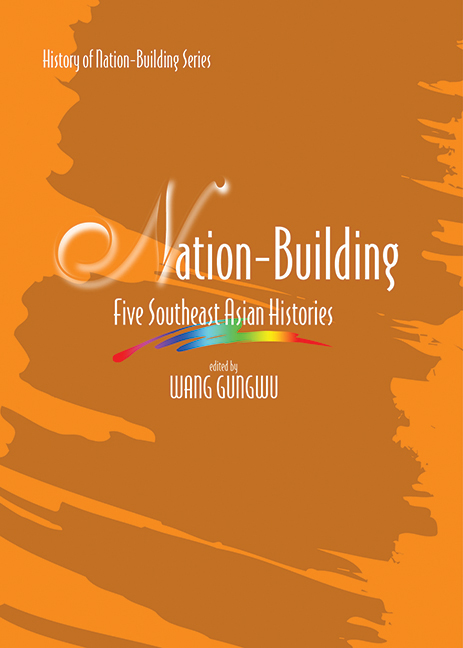Book contents
- Frontmatter
- Contents
- Preface
- The Contributors
- Chapter One Contemporary and National History: A Double Challenge
- Chapter Two Nation and State in Histories of Nation-Building, with Special Reference to Thailand
- Chapter Three Rethinking History and “Nation-Building” in the Philippines
- Chapter Four Writing the History of Independent Indonesia
- Chapter Five Ethnicity in the Making of Malaysia
- Chapter Six Historians Writing Nations: Malaysian Contests
- Chapter Seven Writing Malaysia's Contemporary History
- Chapter Eight Forging Malaysia and Singapore: Colonialism, Decolonization and Nation-Building
- Chapter Nine Nation-Building and the Singapore Story: Some Issues in the Study of Contemporary
- Chapter Ten Nation and Heritage
- Index
Chapter Eight - Forging Malaysia and Singapore: Colonialism, Decolonization and Nation-Building
Published online by Cambridge University Press: 21 October 2015
- Frontmatter
- Contents
- Preface
- The Contributors
- Chapter One Contemporary and National History: A Double Challenge
- Chapter Two Nation and State in Histories of Nation-Building, with Special Reference to Thailand
- Chapter Three Rethinking History and “Nation-Building” in the Philippines
- Chapter Four Writing the History of Independent Indonesia
- Chapter Five Ethnicity in the Making of Malaysia
- Chapter Six Historians Writing Nations: Malaysian Contests
- Chapter Seven Writing Malaysia's Contemporary History
- Chapter Eight Forging Malaysia and Singapore: Colonialism, Decolonization and Nation-Building
- Chapter Nine Nation-Building and the Singapore Story: Some Issues in the Study of Contemporary
- Chapter Ten Nation and Heritage
- Index
Summary
Colonialism and State-Building
Nations have been compared with organisms. Metaphors of growth and evolution, of life and death, have been used in their depiction. They have alternatively been seen as constructs, or products of a political process characterized as “nation-building”. This process is sometimes described as “forging a nation”. It suggests feats of engineering and conjures up the heat of the workshop and the strength and skill of the craftsman. Yet fabrication also suggests falsification. Indeed, as Avi Shlaim has commented, “it is interesting to note how frequently the phrase ‘forging a nation’ is used, because most nations are forgeries. Indeed, some nations are based on little more than a mythological view of the past and a hatred of foreigners”. Post-colonial nations have been deliberately and artificially shaped to fit nationalist agendas, but they also bear the hammer blows of colonialism which over the years worked against the grain of national self-determination and only in its last phase hastily cobbled together successor-states that might pass for nation-states.
While nation-building has been the principal task of political leaders, economic planners and social engineers in post-colonial Southeast Asia, the foundations of their states were laid during the colonial period. Colonialism demarcated territorial boundaries, established institutions of centralized government, developed primate cities, served as a conduit for global influences, and bequeathed models for modernization. In so doing, colonialism was responsible for the integration of communities within larger government structures and economic systems. Moreover, the capacity of colonial administration for ruling and the costs of doing so led to its greater intervention in indigenous societies as heads were counted in the census, as land ownership was determined, and, most importantly, as taxes were collected. At the same time, the long reach of the colonial state contributed to individuals’ consciousness of being members of a larger community. Thus colonial rule provoked resistance from those whom it dispossessed and sharpened the aspirations of others whom it benefited. Unwittingly fashioning the political identities of subject peoples, the colonial state not only provoked demands for self-determination but also provided the mould for its successor, the nation-state.
- Type
- Chapter
- Information
- Nation BuildingFive Southeast Asian Histories, pp. 191 - 220Publisher: ISEAS–Yusof Ishak InstitutePrint publication year: 2005



